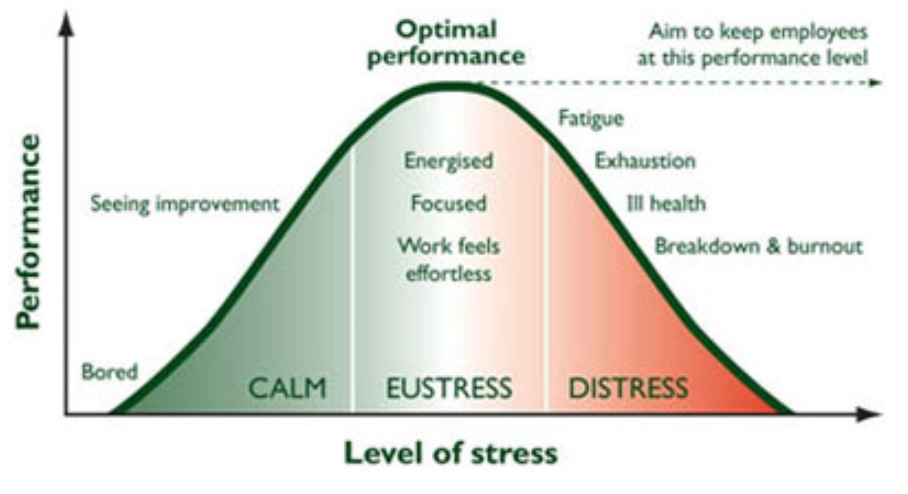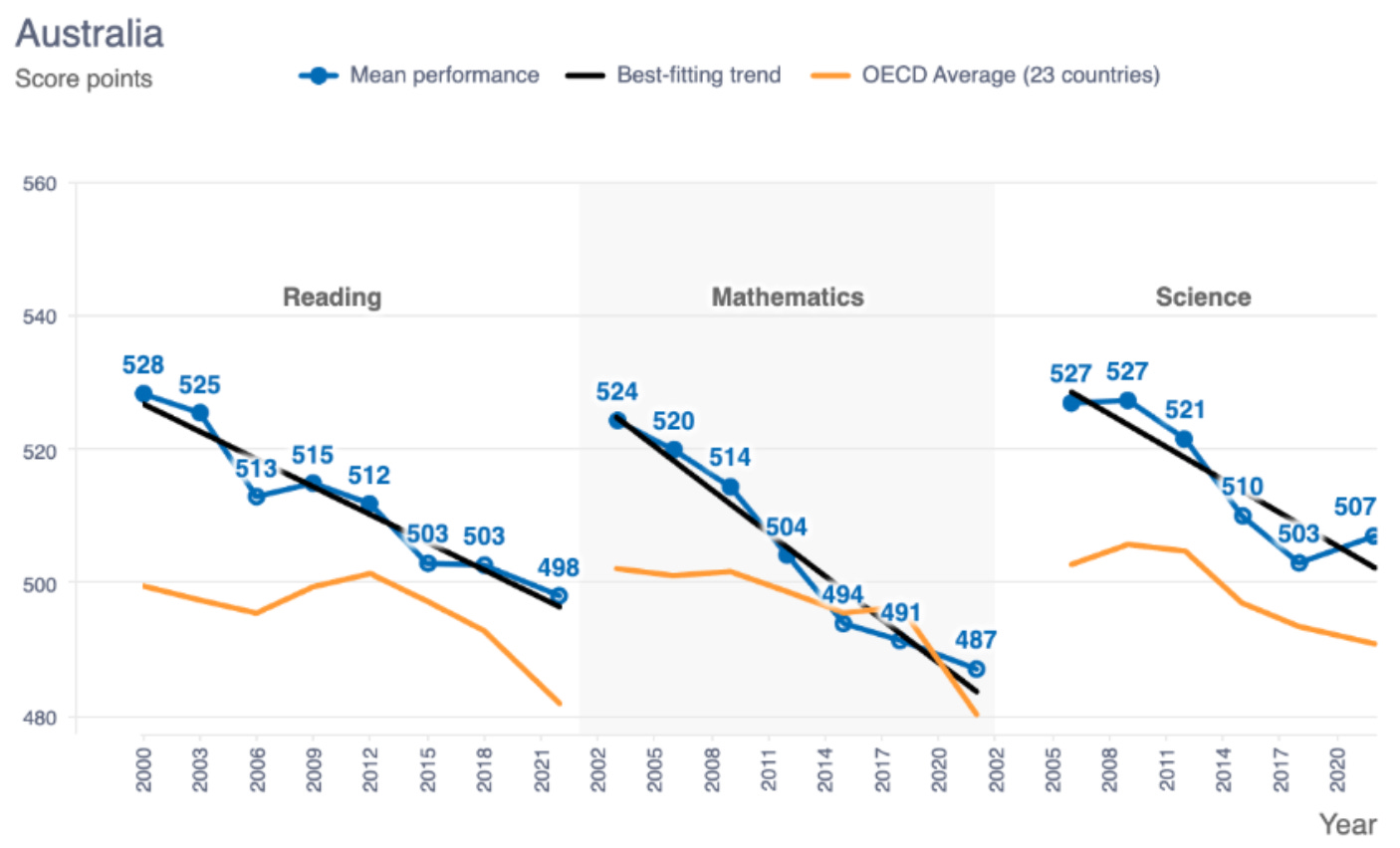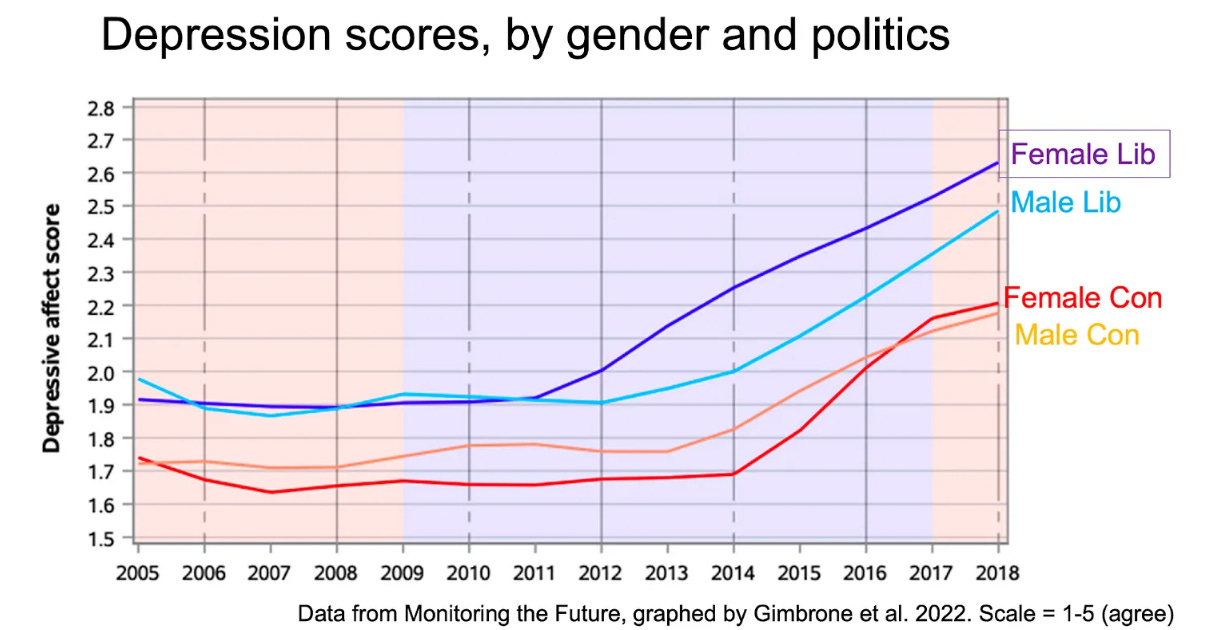Excess vs Deficit Empathy: Which Does More Harm?
The Paradox of Empathy: When Good Intentions Go Too Far
Like most things, I think empathy can be done in a good (healthy) and bad (unhealthy) way. Today, I think it’s generally seen that ‘more empathy is good, less empathy is bad’. Empathy to excess I feel can be unhealthy, leading to worse mental health, increased learned helplessness and worse academic outcomes.
Aristotle’s Golden Mean - Deficiency (bad / unhealthy) ⇔ Balance (good / healthy) ⇔ Excess (bad / unhealthy)
During work time I think the optimal is ‘eustress’. During relaxation time the optimal is ‘calm’.
Healthy vs Unhealthy Empathy - The path to hell is paved with good intentions.
Are declining academic and mental health outcomes related to excess empathy?
Over the last two decades, academic performance has slipped across OECD countries. For example, Australian Year 10 PISA scores in reading, maths and science have all trended downward since 2000.
At the same time, depression and learned-helplessness measures are rising, particularly among young people who report feeling “something always stops me” when they try to get ahead . Excessive empathy—when taken to the extreme—can erode agency and fuel that sense of helplessness.
This is one of the most important articles I’ve read in the last 4 years.
Quotes
“The path to hell is paved with good intentions.” — Proverb
“Discipline equals freedom.” — Jocko Willink
“Virtue is the golden mean between two vices, the one of excess and the other of deficiency.” — Aristotle
“Everything in excess is opposed to nature.” — Hippocrates
If you only take away one thing: Find Your Empathy Sweet Spot
Empathy is a superpower, but like most superpowers, it works best in balance. Too little leaves us cold; too much leaves us frazzled. Through Aristotle’s Golden Mean, hopefully you can watch your resilience, growth mindset and well-being flourish.







